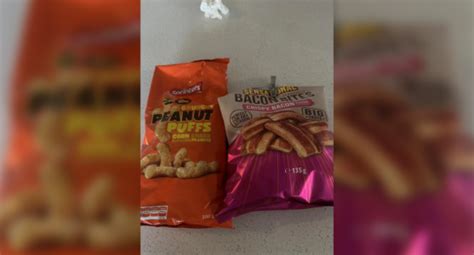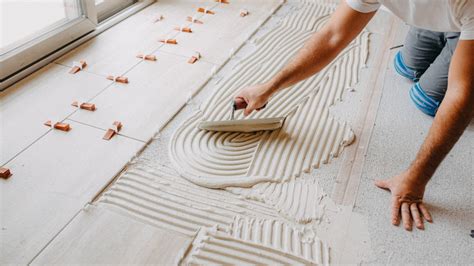
Carnival Cruise Line is warning passengers to adhere strictly to onboard toilet flushing guidelines or face potential fines, aiming to prevent plumbing issues that can disrupt voyages.
Carnival Cruise Line is taking a hard line on what passengers flush down the toilets on its ships, threatening fines for those who clog the plumbing system. The cruise line has issued a stern warning to passengers, reminding them that only toilet paper should be flushed, with anything else potentially leading to costly plumbing problems and service disruptions. The company aims to maintain smooth operations and avoid the unpleasant consequences of clogged toilets during voyages.
The cruise line’s stance is outlined in notices placed in passenger cabins and restrooms across its fleet. These notices explicitly state that items other than toilet paper, such as sanitary products, wipes, and paper towels, should not be flushed. Carnival emphasizes that violations of these rules can result in fines levied against the offending passengers’ onboard accounts. The exact amount of the fine is not specified in the public announcement, but the message underscores the seriousness with which Carnival views this issue.
According to Carnival, the rationale behind the stringent policy is to prevent damage to the ship’s sensitive plumbing infrastructure. Cruise ship plumbing systems differ significantly from those in residential buildings. They are designed to handle waste efficiently within a closed-loop environment, often involving vacuum-assisted technology to reduce water consumption. Foreign objects can quickly clog these systems, leading to overflows, toilet backups, and even system-wide failures.
Such plumbing problems are not merely an inconvenience; they can have broader implications for the entire cruise experience. Clogged toilets can lead to unsanitary conditions, unpleasant odors, and the temporary unavailability of restroom facilities. In severe cases, plumbing failures can force the ship to alter its itinerary, delaying arrival at ports or even requiring unscheduled maintenance stops.
“To help us keep the plumbing flowing, please only flush toilet paper,” Carnival Cruise Line states in its onboard notices. “Anything else needs to go in the bin. Violations will result in a charge to your onboard account.”
The warning from Carnival Cruise Line reflects a common challenge faced by cruise operators worldwide. Cruise ships, designed to be self-contained environments, rely on intricate systems for waste management, water treatment, and sanitation. These systems are vulnerable to misuse, and the flushing of inappropriate items is a persistent concern.
Other cruise lines, including Royal Caribbean and Norwegian Cruise Line, have similar policies in place regarding toilet usage. These policies are generally communicated to passengers through pre-cruise information, onboard announcements, and signage in restrooms. Like Carnival, these lines emphasize the importance of responsible waste disposal to protect the ship’s infrastructure and maintain a hygienic environment.
The issue of what not to flush extends beyond just cruise ships and is a growing concern in municipal wastewater systems globally. Cities and towns are increasingly grappling with the problem of “flushable” wipes and other non-degradable items clogging sewer lines and causing costly damage to treatment plants. This has led to public awareness campaigns aimed at educating residents about proper disposal practices.
For cruise passengers, adhering to the toilet flushing rules is a matter of personal responsibility and consideration for fellow travelers. By disposing of waste properly, passengers can help ensure a smooth and enjoyable cruise experience for everyone on board. The potential for fines serves as an additional incentive to comply with the guidelines, reinforcing the message that responsible behavior is expected on Carnival Cruise Line.
Carnival’s policy aims to prevent a wide range of plumbing issues that can arise from flushing inappropriate items. These issues can range from minor inconveniences to significant disruptions affecting the entire ship. Understanding the potential consequences can help passengers appreciate the importance of the rules.
One of the most common problems caused by flushing items other than toilet paper is simple clogging. When items like sanitary products, wipes, or paper towels enter the plumbing system, they can accumulate in the pipes and restrict the flow of water and waste. This can lead to toilets backing up, sinks draining slowly, and unpleasant odors emanating from the drains.
In more severe cases, clogs can cause overflows, resulting in water damage to cabins and public areas. The cleanup process can be extensive and disruptive, requiring the removal of carpets, upholstery, and other affected materials. The resulting inconvenience can significantly detract from the cruise experience for both the affected passengers and those in nearby cabins.
Another significant consequence of flushing inappropriate items is damage to the ship’s pumps and treatment systems. Cruise ships use sophisticated pumps to move wastewater through the plumbing system and to the onboard treatment plants. These pumps are designed to handle human waste and toilet paper, but they are not equipped to process larger, non-degradable items.
When these items enter the pumps, they can cause blockages and damage to the impellers and other internal components. This can lead to pump failures, requiring costly repairs or replacements. The failure of a critical pump can disrupt the entire wastewater treatment process, potentially leading to environmental concerns if untreated waste is discharged into the ocean.
Cruise ships are equipped with onboard wastewater treatment plants that remove contaminants from the water before it is discharged. These plants rely on a variety of physical, chemical, and biological processes to purify the water. However, the effectiveness of these processes can be compromised by the presence of non-degradable items.
Wipes, for example, can accumulate in the treatment tanks and clog the filters and screens used to remove solids from the water. This can reduce the efficiency of the treatment process, leading to higher levels of pollutants in the discharged water. In some cases, the accumulation of debris can even damage the treatment equipment, requiring costly repairs and potentially leading to violations of environmental regulations.
The impact of plumbing problems extends beyond just the immediate inconvenience of clogged toilets and overflowing sinks. In severe cases, plumbing failures can affect the ship’s itinerary, delaying arrival at ports or even requiring unscheduled maintenance stops.
If a major plumbing issue occurs while the ship is at sea, it may be necessary to divert to the nearest port for repairs. This can result in missed port calls, shortened stays in other destinations, and changes to the overall cruise schedule. Passengers may be disappointed by the altered itinerary, and the cruise line may incur additional expenses for fuel, port fees, and other logistical arrangements.
In some cases, plumbing problems can be so severe that they require the ship to be taken out of service for an extended period. This can result in the cancellation of future cruises, leaving passengers stranded and disrupting their vacation plans. The cruise line may be required to provide refunds, compensation, and alternative travel arrangements for affected passengers, adding to the financial burden of the plumbing failure.
Carnival Cruise Line’s policy on toilet flushing is not just about preventing inconvenience; it is also about protecting the environment. Cruise ships operate in sensitive marine environments, and the responsible disposal of waste is essential to minimize their impact on the ocean.
When non-degradable items are flushed down the toilet, they can end up in the ocean, either through accidental discharges or through the failure of onboard treatment systems. These items can persist in the marine environment for years, polluting beaches, entangling marine life, and disrupting ecosystems.
Plastic items, in particular, pose a significant threat to marine wildlife. Sea turtles, seabirds, and marine mammals can mistake plastic debris for food, leading to ingestion and starvation. Plastic items can also accumulate in the stomachs of these animals, blocking their digestive systems and causing death.
By adhering to the toilet flushing rules, passengers can help prevent pollution and protect the marine environment. Disposing of waste properly ensures that it is treated effectively onboard the ship and does not end up harming marine life or polluting the ocean.
Carnival Cruise Line’s decision to impose fines for violations of the toilet flushing rules is a reflection of the seriousness with which the company views this issue. While the exact amount of the fine has not been publicly disclosed, the message is clear: passengers who fail to comply with the rules will be held accountable.
The implementation of fines is intended to serve as a deterrent, discouraging passengers from flushing inappropriate items down the toilet. The threat of financial penalties can be a powerful motivator, encouraging passengers to be more mindful of their waste disposal habits.
The fines also help to offset the costs associated with repairing plumbing damage and cleaning up overflows. When passengers flush inappropriate items, they are essentially creating a problem that the cruise line must then address. The fines help to recoup some of the expenses incurred in resolving these problems.
Furthermore, the fines send a message that responsible behavior is expected on Carnival Cruise Line. The cruise line is committed to providing a safe, clean, and enjoyable experience for all passengers, and the toilet flushing rules are an important part of that commitment. By enforcing these rules, the cruise line is reinforcing the message that passengers are expected to act responsibly and considerately.
The warning from Carnival Cruise Line also highlights the importance of passenger education. Many passengers may not be aware of the potential consequences of flushing inappropriate items down the toilet, or they may not realize that cruise ship plumbing systems are different from those in residential buildings.
Carnival Cruise Line provides information to passengers about the toilet flushing rules through a variety of channels, including pre-cruise communications, onboard announcements, and signage in restrooms. This information is intended to educate passengers about the rules and the reasons behind them.
By educating passengers, Carnival Cruise Line hopes to foster a culture of responsible waste disposal on its ships. When passengers understand the importance of the rules and the potential consequences of violating them, they are more likely to comply.
In addition to providing information, Carnival Cruise Line also encourages passengers to ask questions if they are unsure about what is acceptable to flush down the toilet. Crew members are available to answer questions and provide guidance, helping passengers to make informed decisions about waste disposal.
Carnival Cruise Line’s toilet flushing policy is part of a broader effort to promote sustainability and environmental responsibility. Cruise lines are under increasing pressure to reduce their environmental impact, and waste management is a key area of focus.
In addition to the toilet flushing rules, Carnival Cruise Line has implemented a variety of other initiatives to reduce waste and protect the environment. These initiatives include:
- Reducing the use of single-use plastics: Carnival Cruise Line has eliminated plastic straws, stirrers, and other single-use plastic items from its ships.
- Recycling programs: Carnival Cruise Line has implemented recycling programs on its ships, collecting and recycling paper, plastic, glass, and metal.
- Food waste reduction: Carnival Cruise Line has implemented programs to reduce food waste, such as offering smaller portion sizes and composting food scraps.
- Water conservation: Carnival Cruise Line has implemented water conservation measures, such as using low-flow showerheads and toilets.
- Energy efficiency: Carnival Cruise Line has invested in energy-efficient technologies, such as LED lighting and solar panels.
By implementing these initiatives, Carnival Cruise Line is demonstrating its commitment to sustainability and environmental responsibility. The toilet flushing policy is just one piece of this broader effort, but it is an important one. By working together, passengers and crew members can help to protect the environment and ensure a sustainable future for the cruise industry.
The policy from Carnival Cruise Line also brings attention to the importance of infrastructure maintenance in the cruise industry. Cruise ships are complex machines that require regular maintenance to ensure their safe and efficient operation.
Plumbing systems are a critical part of this infrastructure, and they require regular inspection and maintenance to prevent problems. This includes cleaning pipes, repairing leaks, and replacing worn-out components.
By preventing plumbing problems, Carnival Cruise Line can reduce the risk of disruptions to its cruises and ensure a smooth and enjoyable experience for its passengers. Regular maintenance also helps to extend the lifespan of the plumbing system, reducing the need for costly replacements.
Investing in infrastructure maintenance is a key part of Carnival Cruise Line’s commitment to providing a safe, reliable, and sustainable cruise experience. By taking care of its ships, the cruise line can ensure that they continue to operate smoothly and efficiently for years to come.
In conclusion, Carnival Cruise Line’s warning to passengers about toilet flushing rules underscores the importance of responsible waste disposal on cruise ships. The potential for fines serves as a deterrent, encouraging passengers to comply with the rules and protect the ship’s plumbing system. By adhering to the rules, passengers can help prevent plumbing problems, protect the environment, and ensure a smooth and enjoyable cruise experience for everyone on board. The cruise line’s policy is a reminder that responsible behavior is expected on cruise ships and that passengers have a role to play in maintaining a safe, clean, and sustainable environment.
Frequently Asked Questions (FAQ)
-
What items are prohibited from being flushed down the toilets on Carnival Cruise Line ships?
- According to Carnival Cruise Line, only toilet paper should be flushed. Prohibited items include sanitary products (such as tampons and pads), wipes (including “flushable” wipes), paper towels, diapers, and any other non-degradable materials.
-
Why is Carnival Cruise Line implementing this strict policy and potentially fining passengers?
- The policy aims to prevent damage to the ship’s sensitive plumbing infrastructure. Cruise ship plumbing systems are designed to handle waste efficiently within a closed-loop environment, often using vacuum-assisted technology. Flushing inappropriate items can cause clogs, overflows, damage to pumps and treatment systems, and even force itinerary changes. The fines are intended to deter passengers from violating the rules and to help offset the costs associated with repairing plumbing damage.
-
What could happen if a passenger violates the toilet flushing rules on a Carnival cruise?
- Violations of the toilet flushing rules can result in a charge to the passenger’s onboard account. The exact amount of the fine is not specified in the public announcement. More broadly, flushing inappropriate items can lead to clogged toilets, overflows, unpleasant odors, and potential disruptions to the cruise experience for all passengers. In severe cases, plumbing failures can affect the ship’s itinerary.
-
Are other cruise lines adopting similar policies regarding toilet flushing?
- Yes, other cruise lines, including Royal Caribbean and Norwegian Cruise Line, have similar policies in place regarding toilet usage. These policies are generally communicated to passengers through pre-cruise information, onboard announcements, and signage in restrooms. Like Carnival, these lines emphasize the importance of responsible waste disposal to protect the ship’s infrastructure and maintain a hygienic environment.
-
How does this toilet flushing policy contribute to Carnival Cruise Line’s broader sustainability efforts?
- Carnival Cruise Line’s toilet flushing policy is part of a broader effort to promote sustainability and environmental responsibility. By preventing non-degradable items from entering the ocean, the policy helps to protect marine life and ecosystems. Carnival also has other sustainability initiatives like reduction of single-use plastics, recycling programs, food waste reduction, water conservation, and energy efficiency. These efforts are all part of a commitment to reduce their environmental impact.
-
What type of plumbing system do cruise ships typically use, and why is it different from residential systems?
- Cruise ships commonly employ vacuum-assisted plumbing systems, which are distinct from the gravity-based systems found in most homes. These systems use a vacuum to efficiently transport waste with minimal water usage, conserving valuable resources onboard. Due to the intricate and closed-loop nature of these systems, they are more susceptible to clogs and damage from non-degradable items, unlike residential systems that are often more robust and connected to larger municipal sewage networks.
-
What are the potential environmental consequences of flushing non-degradable items into the ocean from cruise ships?
- Flushing non-degradable items into the ocean can lead to severe environmental consequences, including pollution of beaches, entanglement of marine life, and disruption of ecosystems. Plastic items, in particular, pose a significant threat as they persist in the marine environment for extended periods, often being ingested by sea turtles, seabirds, and marine mammals. This ingestion can cause starvation, digestive blockages, and ultimately, death. Additionally, these items can compromise the effectiveness of onboard wastewater treatment systems, leading to higher levels of pollutants being discharged into the ocean.
-
What steps can passengers take to ensure they are complying with Carnival Cruise Line’s toilet flushing policy?
- To comply with Carnival Cruise Line’s toilet flushing policy, passengers should only flush toilet paper down the toilets. All other items, including sanitary products, wipes, paper towels, diapers, and any other non-degradable materials, should be properly disposed of in the bins provided in the restrooms and cabins. Passengers should also familiarize themselves with onboard signage and pre-cruise communications regarding waste disposal guidelines. If unsure about whether an item can be flushed, they should ask a crew member for guidance.
-
How does Carnival Cruise Line communicate its toilet flushing policy to passengers?
- Carnival Cruise Line communicates its toilet flushing policy to passengers through a variety of channels, including:
- Pre-Cruise Communications: Information about the policy is often included in pre-cruise emails, online resources, and travel documents provided to passengers before their voyage.
- Onboard Announcements: Announcements are made periodically throughout the cruise to remind passengers of the policy.
- Signage in Restrooms: Clear and visible signs are posted in all restrooms across the ship, outlining the items that should not be flushed.
- Cabin Notices: Notices are placed in passenger cabins to reinforce the policy and provide further information.
- Crew Member Interaction: Crew members are trained to answer questions and provide guidance to passengers regarding the toilet flushing policy and responsible waste disposal practices.
-
What impact can plumbing issues have on a cruise ship’s itinerary and overall passenger experience?
- Plumbing issues on a cruise ship can have a significant impact on the itinerary and overall passenger experience. Clogged toilets and overflows can lead to unsanitary conditions, unpleasant odors, and the temporary unavailability of restroom facilities. In severe cases, plumbing failures can force the ship to alter its itinerary, delaying arrival at ports or even requiring unscheduled maintenance stops. This can result in missed port calls, shortened stays in other destinations, and changes to the overall cruise schedule, causing disappointment and inconvenience for passengers. Extensive plumbing repairs may even necessitate taking the ship out of service, leading to cruise cancellations and further disruption of passenger plans.
-
Can you elaborate on the long-term effects of using “flushable” wipes in cruise ship plumbing systems?
- While marketed as “flushable,” these wipes often do not break down like toilet paper and can accumulate in the plumbing system. This build-up can cause severe clogs that require extensive maintenance to resolve, potentially leading to system-wide failures over time. The ongoing use of these wipes can also degrade the efficiency of the onboard wastewater treatment plants, increasing the levels of pollutants released into the marine environment. Regular maintenance and potential system overhauls add to the operational costs, highlighting the long-term financial impact of this practice.
-
How are cruise lines working to innovate their waste management systems beyond just toilet flushing policies?
- Cruise lines are investing in innovative waste management systems to reduce their environmental footprint, including advanced wastewater treatment technologies that exceed regulatory standards. Some ships are equipped with systems that convert waste into energy, reducing the volume of waste that needs to be disposed of. Additionally, cruise lines are implementing more comprehensive recycling programs, using advanced sorting technologies to maximize the recovery of recyclable materials. Efforts to reduce food waste through improved inventory management and food preparation techniques are also underway. These initiatives demonstrate a commitment to sustainable waste management practices.
-
In what ways does Carnival Cruise Line train its staff to handle plumbing issues and educate passengers about proper waste disposal?
- Carnival Cruise Line invests in comprehensive training programs for its staff to handle plumbing issues effectively. This training includes diagnostic procedures, repair techniques, and preventive maintenance protocols. Crew members are also trained to educate passengers about proper waste disposal practices. This training involves explaining the importance of the toilet flushing policy, providing clear instructions on what items are prohibited, and answering any questions passengers may have. Staff members are equipped with the knowledge and skills to address plumbing problems promptly and effectively, while also promoting responsible behavior among passengers.
-
What regulatory bodies oversee waste management practices on cruise ships, and what are the potential penalties for non-compliance?
- Waste management practices on cruise ships are overseen by various international and national regulatory bodies, including the International Maritime Organization (IMO), the United States Environmental Protection Agency (EPA), and port state control authorities. These bodies enforce regulations related to the discharge of pollutants, including wastewater and solid waste, into the marine environment. Non-compliance with these regulations can result in significant penalties, including fines, vessel detentions, and reputational damage. Cruise lines must adhere to strict standards and undergo regular inspections to ensure they are meeting their environmental obligations.
-
Beyond the immediate fines, are there any other potential repercussions for passengers who repeatedly violate the toilet flushing policy?
- While the immediate consequence of violating the toilet flushing policy is a fine charged to the passenger’s onboard account, repeated violations can lead to more severe repercussions. Cruise lines reserve the right to disembark passengers who repeatedly engage in disruptive or harmful behavior, including repeated violations of the toilet flushing policy. This means that passengers could be required to leave the ship at the next port of call and may be responsible for covering their own travel expenses back home. Additionally, the cruise line may refuse to allow the passenger to sail with them in the future.
-
Can you expand on the specific types of pumps and wastewater treatment technologies used on Carnival Cruise ships?
- Carnival Cruise ships utilize a range of advanced pumps and wastewater treatment technologies to manage waste efficiently. Vacuum pumps are used in the toilets to minimize water consumption while effectively transporting waste. These pumps are designed to handle human waste and toilet paper, but are vulnerable to damage from other items. The ships also employ Membrane Bioreactor (MBR) technology for wastewater treatment. MBR systems use a combination of biological processes and membrane filtration to remove contaminants from the wastewater. This technology produces high-quality effluent that meets stringent environmental standards. The treated water can then be safely discharged into the ocean or reused for non-potable purposes on the ship.
-
How is the cost of repairing plumbing systems on a cruise ship typically covered, especially when caused by passenger negligence?
- The cost of repairing plumbing systems on a cruise ship can be substantial, particularly when damage is caused by passenger negligence. While routine maintenance and repairs are covered by the cruise line’s operational budget, damage caused by passengers flushing prohibited items is often addressed through fines and other measures. The fines charged to offending passengers help to offset the costs associated with repairing the damage and cleaning up overflows. In cases of significant damage, the cruise line may pursue additional legal remedies to recover the full cost of repairs. The overall goal is to ensure that the cruise line is not solely responsible for covering the expenses caused by passenger negligence.
-
What role does technology play in monitoring and managing waste levels and potential clogs within the plumbing systems of cruise ships?
- Technology plays a crucial role in monitoring and managing waste levels and potential clogs within the plumbing systems of cruise ships. Sensors are strategically placed throughout the plumbing network to detect changes in pressure, flow rates, and other parameters that can indicate a potential problem. These sensors transmit data to a central monitoring system, which alerts crew members to any anomalies. Some cruise ships are also equipped with advanced imaging technologies that allow engineers to visually inspect the inside of pipes and identify the location of clogs. This technology enables crew members to address plumbing issues proactively, preventing them from escalating into more serious problems.
-
How do cruise lines balance the need for stringent waste disposal policies with the desire to provide a comfortable and convenient experience for passengers?
- Cruise lines strive to balance the need for stringent waste disposal policies with the desire to provide a comfortable and convenient experience for passengers through a combination of education, clear communication, and accessible waste disposal facilities. They educate passengers about the importance of responsible waste disposal practices through pre-cruise communications, onboard announcements, and signage in restrooms. Cruise lines provide clear instructions on what items are prohibited from being flushed and explain the reasons behind these policies. They also ensure that restrooms are equipped with readily accessible and properly maintained waste bins for disposing of non-flushable items. By making it easy for passengers to comply with the waste disposal policies, cruise lines can maintain a clean and sanitary environment while minimizing inconvenience for their guests.
-
Considering the global scope of cruise operations, how do waste management regulations and practices vary across different regions and ports of call?
- Waste management regulations and practices vary significantly across different regions and ports of call, reflecting the diverse environmental standards and enforcement capabilities of different countries and jurisdictions. Some regions have stricter regulations regarding the discharge of wastewater and solid waste into the marine environment than others. Cruise lines must comply with all applicable regulations in each region and port they visit, which can require adapting their waste management practices to meet local requirements. Port state control authorities conduct inspections to ensure that cruise ships are meeting their environmental obligations, and non-compliance can result in penalties, vessel detentions, and reputational damage. The variability in regulations underscores the importance of cruise lines maintaining robust and adaptable waste management systems to ensure compliance worldwide.









